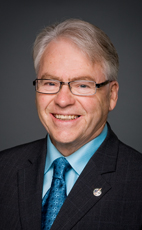Mr. Speaker, I am pleased to have a few minutes to talk about this excellent bill, which I support and many of my colleagues in our party support as well.
I am from Thunder Bay in northwestern Ontario. Many people throughout northwestern Ontario indulge in our hunting, fishing and trapping activities, but even the ones who do not actually do it themselves, their brothers, their friends and their cousins do and many of them benefit from the fish and game on their table that they do not hunt themselves.
I am a hunter myself, a fisher person, and a former licensed trapper. I am very proud that for 10 years I lived on a trapline and slogged through snow at -20°, -30° or -40° to do that trapping.
Hunting, fishing and trapping are our national heritage. There was a time when many Canadians, if they were not able to hunt, fish and trap, did not eat. They did not live. It is not only a cultural thing and a personal heritage thing, but for a long time in our country it was their survival.
The licence fees of hunters and fishers across Canada, in many cases, support most of our conservation. In addition to being a hunter and a fisher, I am also a bird watcher, a conservationist and I support the creation of parks and wilderness areas. However, I have always found it ironic that most of the people who do not hunt and fish have not yet found ways to actually put money directly into our hunting, fishing and wildlife conservation funds.
When I learned to trap, I learned from my native friends in the Armstrong area, from the Whitesand First Nation, from the people who live in Namaygoosisgagun, along the CN rail line where there is vast wilderness and wonderful hunting, fishing and trapping.
Those aboriginal people have learned those skills and they have practised those skills for thousands of years. As we know, they were here for many thousands of years before we were. It was generous of them to teach me those skills so that I can pass them along in future years to my son.
We had explorers in Canada, our cartographers, people such as David Thompson and others who were not only cartographers but worked sometimes for the Hudson's Bay Company and other trapping companies. They mapped our prairies, our forests and our rivers. They worked their way to the Pacific Ocean and paved the way for the incredible country that Canada is today.
Today, millions and millions of Canadians still hunt, fish and trap. Hunting, fishing and trapping, especially hunting and fishing, are a very important part of our economy. They are important to our tourism industry. They are important for many Canadians for outdoor recreation, for urban and rural and hinterland folks.
They are a source of healthy food in this day and age when many of our supermarket foods are contaminated by herbicides, pesticides, hormones and additives. Wild foods, country foods, are healthy to eat.
As I have mentioned, it is a family activity. I have already taught my 15-year-old son how to fish and how to fillet, and to cook them too. Soon I will be teaching him how to shoot and how to hunt.
I would like to summarize by saying that I am very much in favour of the bill. I support it wholeheartedly and I urge the House to hurry it along to the other place and pass it as the law of this country.

